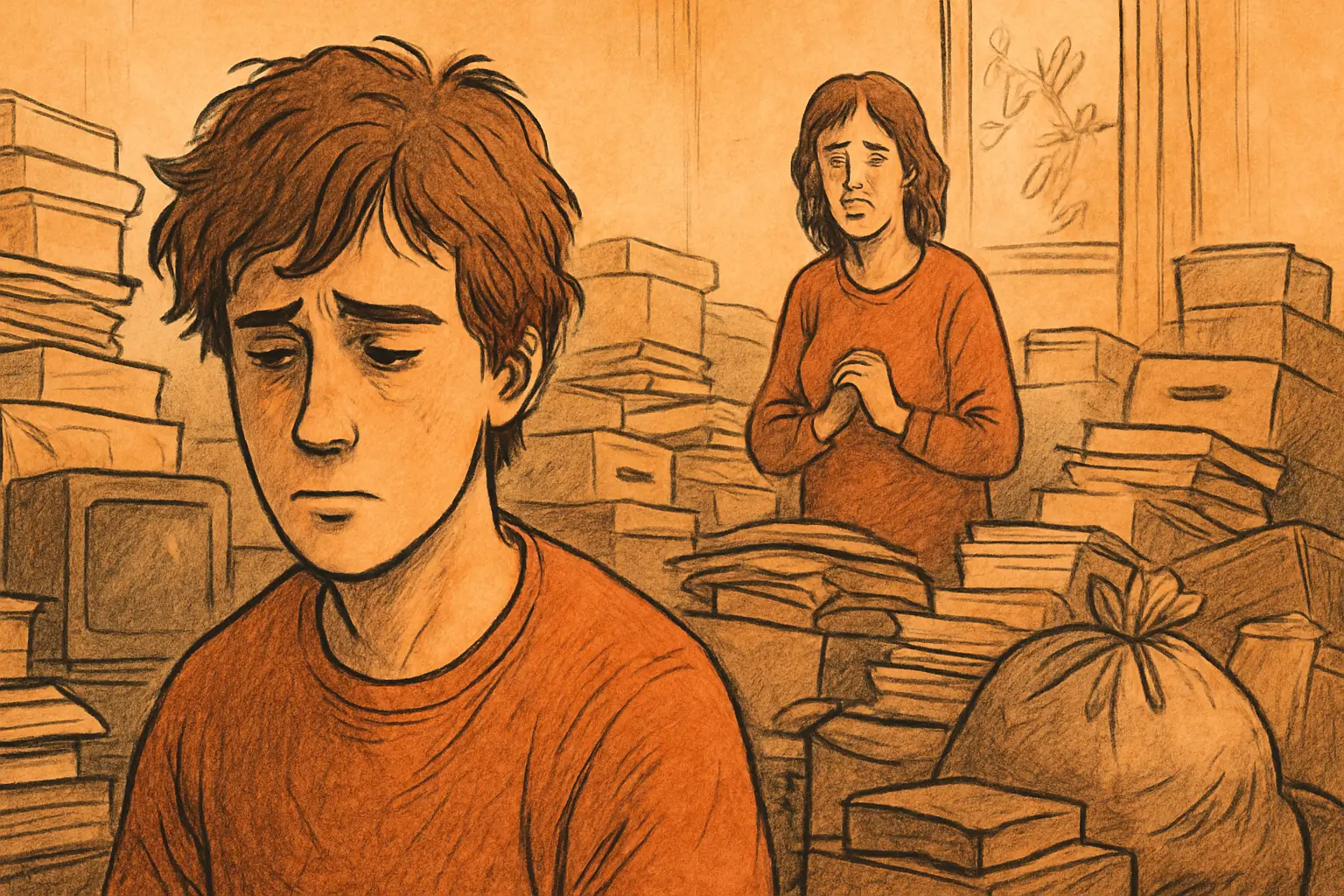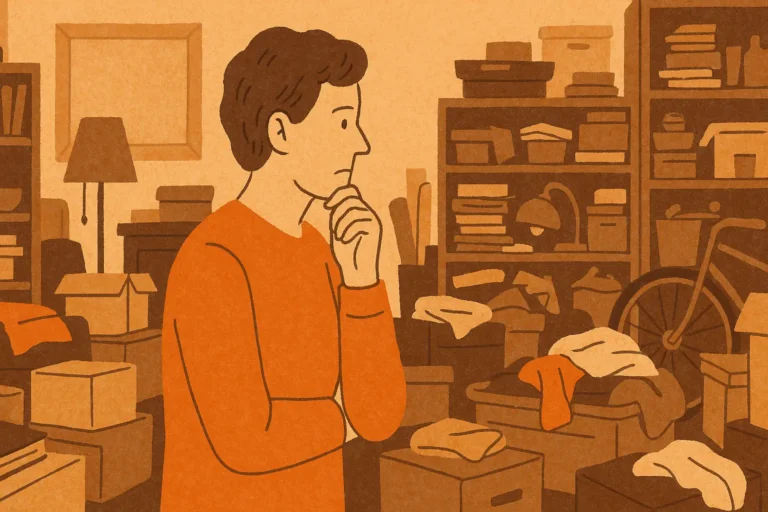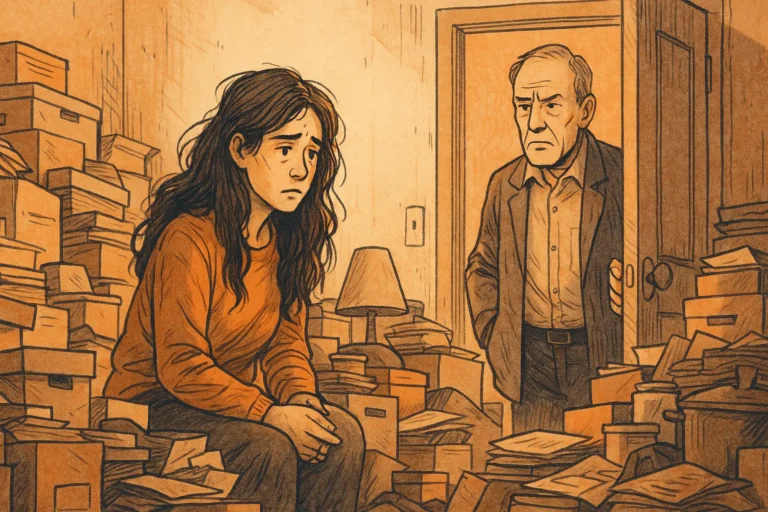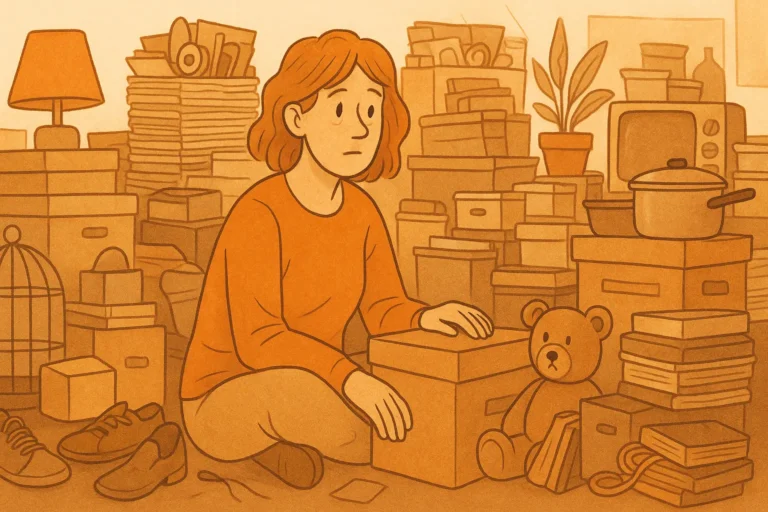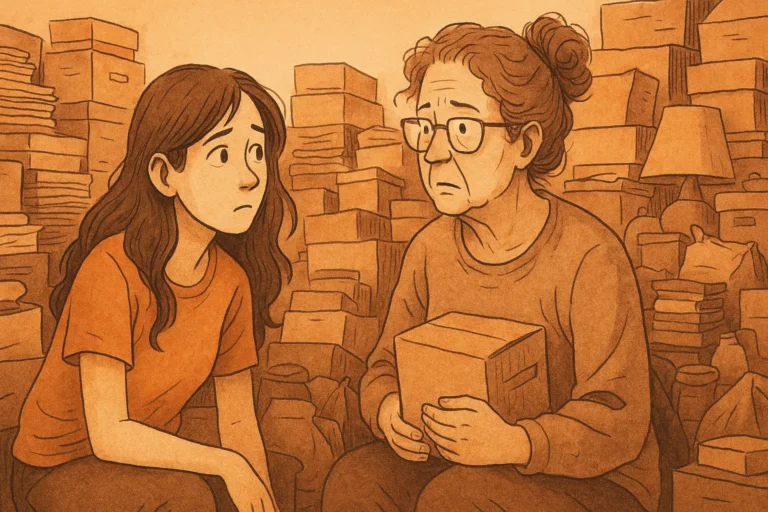Emotional Trauma of Growing Up With a Parent Who Hoards
If you grew up in a home where a parent hoarded, you already know it’s not just about clutter. Hoarding is about so much more than “messiness.” It’s about living in an environment where piles of things control daily life—sometimes even controlling relationships and emotions. For children, that experience can be deeply painful and long-lasting.
In this post, we’ll look at the emotional trauma of growing up with a parent who hoards, why it happens, and how it can affect you as an adult. My goal is to give you clarity and compassion—whether you went through this yourself or you’re trying to better understand someone who did.
What It Feels Like as a Child in a Hoarded Home
Children growing up in a hoarded home often feel a mix of confusion, embarrassment, and fear. They may not have the words to explain it, but they sense something isn’t “normal.”
Here are some common feelings children in these homes report:
| Feeling | Why It Happens |
|---|---|
| Shame | Kids are embarrassed to have friends over. They fear being judged. |
| Isolation | They avoid social activities that might expose their home situation. |
| Fear | Clutter can feel unsafe. Kids may worry about fire hazards, pests, or losing their space. |
| Confusion | Children often don’t understand why their parent can’t just “clean up.” |
| Responsibility | Some kids feel they must take care of the mess or even their parent. |
Imagine being a child who wants to invite friends over but knows they can’t because the living room is buried in piles. That constant worry leaves a deep mark.
How Hoarding Shapes a Child’s Emotional World
The emotional trauma isn’t just about the stuff itself—it’s about the relationships and dynamics inside the family.
1. The Parent-Child Bond Gets Strained
Children often feel like their parent’s “things” come before them. This can make them feel unloved or invisible.
2. Kids May Become the Caretaker
When a parent can’t manage their own space, children sometimes take on adult responsibilities—like cleaning, cooking, or protecting siblings. This is called parentification, and it can leave kids feeling robbed of their childhood.
3. Safety Concerns Create Anxiety
When the home feels unsafe due to clutter, kids may live with constant low-level anxiety. They may fear accidents, fires, or even authorities stepping in.
4. Social Development Suffers
Because they avoid bringing friends over, kids may miss out on normal social experiences. That can make it harder to form relationships later in life.
The Hidden Message Kids Hear
Even though parents rarely say this out loud, children in hoarded homes often receive the unspoken message:
“Things matter more than people.”
That message, repeated day after day, can create long-lasting wounds. It can teach kids to believe that their needs are less important—or that love always comes with strings attached.
Long-Term Effects in Adulthood
The emotional trauma doesn’t vanish once a child grows up and leaves the house. Many adults who were raised by hoarders still feel the impact years later.
Here are some common ways it shows up:
Difficulty Trusting Others
Growing up in secrecy can make it hard to trust people. Many adult children of hoarders worry that if people “really knew” them or their past, they’d reject them.
Anxiety Around Belongings
Some adults swing to the opposite extreme and live very minimalist lives because clutter makes them panic. Others find themselves struggling with hoarding behaviors themselves, even though they don’t want to.
Strained Relationships
The patterns learned in childhood—like hiding, avoiding, or over-caretaking—often spill over into adult relationships.
Guilt and Anger Toward the Parent
It’s common to feel conflicted. Many adults love their parent deeply but also feel hurt and angry about what they missed out on growing up.
Stories from Adult Children of Hoarders
Here are a few examples (fictionalized but based on real experiences):
- Sarah, age 32: “I can’t relax if I see a pile of mail on the counter. It makes my heart race. I know it’s not dangerous, but it feels like my childhood all over again.”
- Marcus, age 28: “I never brought friends home. Even now, I still feel like people wouldn’t accept me if they saw where I came from.”
- Jenna, age 40: “I became the parent in my house. I cooked, cleaned what I could, and protected my little brother. Now, I find it hard to let anyone take care of me.”
If you relate to these stories, you’re not alone.
Why This Trauma Feels So Heavy
One reason the trauma is so intense is that home is supposed to be safe. It’s where kids expect comfort, rest, and belonging. When that space instead feels unsafe, overwhelming, or shameful, it cuts deeply.
Another reason is secrecy. Children of hoarders often learn early on to keep everything hidden. That silence makes the trauma even heavier to carry.
Can You Heal from This?
Yes. Healing is absolutely possible. The past can’t be changed, but the way it affects you today can shift.
Here are a few starting points:
1. Name What Happened
Simply acknowledging that growing up with a hoarding parent was traumatic can be powerful. You may have minimized it in the past—telling yourself it wasn’t that bad. Giving it a name allows healing to begin.
2. Find Safe People to Talk To
Whether it’s a therapist, a support group, or trusted friends, talking about your story helps break the silence. You don’t have to carry it alone.
3. Set Boundaries with the Parent
If your parent still hoards, you may need strong boundaries. It’s okay to protect your own mental health, even if that means limiting visits or refusing to help clean.
4. Learn New Patterns
The coping strategies you developed as a child—like hiding feelings or over-caretaking—served you back then, but they may not serve you now. Therapy, journaling, and mindfulness can help you build new ways of relating.
5. Be Gentle with Yourself
Healing takes time. You didn’t cause the hoarding, and you didn’t deserve the trauma. Compassion toward yourself is key.
Final Thoughts
The emotional trauma of growing up with a parent who hoards is real. It can shape how children see themselves, their relationships, and even their sense of safety in the world.
But the story doesn’t have to end there. With understanding, support, and healing, you can build a life that feels safe, free, and deeply connected.
If you grew up this way, know this: your needs matter, your voice matters, and you deserve to live without shame.

